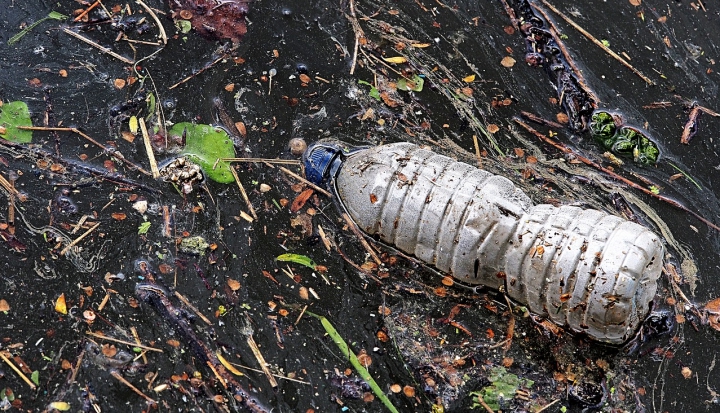Practicing Catholics the world over understand the importance of giving up something for Lent. The typical Lenten sacrifice includes perennial favorites such as giving up candy or swearing off swearing, but Lenten offerings also change with the times, reflecting technological and cultural shifts. Contemporary Lenten fasting could include forgoing that extravagant morning mocha latte or abstaining from the social media that distract us from our interior lives or from “interfacing” with humanoids in the real world. Youngsters offer up sweets; wizened adults target bad habits like smoking in hopes it might lead to lasting lifestyle changes. That Lenten double effect may have inspired the organizers of a unique “giving up” in the United Kingdom, where the Anglican Church this year had one word for its members: plastic.
Like other developed nations, the United Kingdom is awash in the stuff, from grocery shopping bags to milk and juice containers to the millions of straws casually tossed into soft drinks. Since the 1950s more than 8.3 billion tons of plastic have been produced in the United Kingdom—“enough plastic to cover every inch of the United Kingdom ankle-deep more than ten times over,” according to Greenpeace.
In a statement introducing its Lent Plastic Challenge, the Anglican Church implored its members in the United Kingdom to give up single-use plastics with an accompanying calendar that suggested daily sacrifices—plastic cutlery one day, shopping bags the next, and so on. The 40-day blueprint depicted the myriad ways plastics have insinuated into contemporary life, urging a new mindfulness of plastic consumption and a somber reassessment of the long-term impact of our plastic-saturated lives.
Plastics are obviously not just a problem in the United Kingdom. Mutable to a million purposes, in just a few decades plastic has become ubiquitous in food storage, clothing, cleaning supplies, product containers, medical components, toiletries, and in thousands of other everyday products and contraptions.
But this modern convenience has been accompanied by a so-far unaccounted cost. Only about nine percent of the 9.1 billion tons of plastic produced since the 1950s has been recycled. Plastic products may break down into smaller particles over time, but these hydrocarbon-based polymers are not biodegradable. They do not decompose; they accumulate—sometimes in unexpected places and in forms their creators or consumers never imagined.
Grocery bags drift aimlessly across African plains, tangling in trees and brush, a menace to wildlife and to the pristine landscape they pollute. Kenya has joined 40 other countries in banning them completely. Researchers at The Ocean Cleanup, a Dutch foundation developing advanced technologies to rid the oceans of plastic, estimated in 2017 that rivers around the world annually transport between 1.15 and 2.41 million metric tons of plastic waste into the earth’s oceans. A vast garbage patch of plastic and other rubbish is adrift in the Pacific, and all forms of plastic single-use products wash up each day on beaches thousands of miles from the nations where they were produced.
Corpses of birds, sea turtles, whales, and other sea life corrupting on shorelines reveal grotesque harvests of plastics ingested by marine animals while feeding or mistaken by marine life for food. Plastic rings have fouled around the necks and legs of migrating birds and other animals.
During Lent we are reminded that nothing is forever—from dust we have come and to dust we shall return. That is essentially not true for plastics. Starkly confronting mortality, facing up to the demands of penance and restoration during Lent and after, we ponder what is truly important and what we would like to leave behind as an expression of intergenerational solidarity. Most of us would no doubt not want that to be a mountain of plastic for our progeny to somehow overcome.
This article also appears in the May 2018 issue of U.S. Catholic (Vol. 83, No. 5, pg. 42).














Add comment